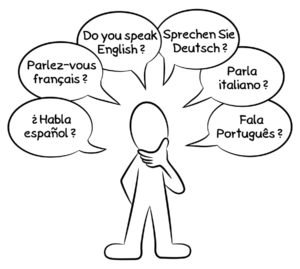Whether it’s for business or pleasure, learning a new language can open up a whole new world.
Imagine conversing with the locals when you travel overseas or conducting business in a client’s native tongue. Rewarding, fun and appreciated, right?
According to science, it could make you smarter too. Especially if you’re a polyglot

When you consider the challenges for the brain, it’s no wonder most of us find learning a language so demanding. We have many different memory systems, and mastering a different tongue requires all of them. There’s procedural memory – the fine programming of muscles to perfect an accent – and declarative memory, which is the ability to remember facts (at least 10,000 new words if you want to come close to native fluency, not to mention the grammar).
How Your Brain Handles Different Languages
Have you ever heard the myth about how only kids can really learn languages well? In case you missed it, that one’s been debunked for a while now.
The human brain is almost magically capable of adapting to new languages at any point in life, and there’s a lot of evidence
to suggest that a new tongue is the best brain food there is.

We know this from looking at some of the differences between the brains of monolinguals and people who speak multiple languages.
Finally when you use your brain for learning you can become smarter and you can know yourself much better and know more the cultures around you.
Thanks
Hi! I am a robot. I just upvoted you! I found similar content that readers might be interested in:
https://www.bbc.com/future/article/20150528-how-to-learn-30-languages
Downvoting a post can decrease pending rewards and make it less visible. Common reasons:
Submit